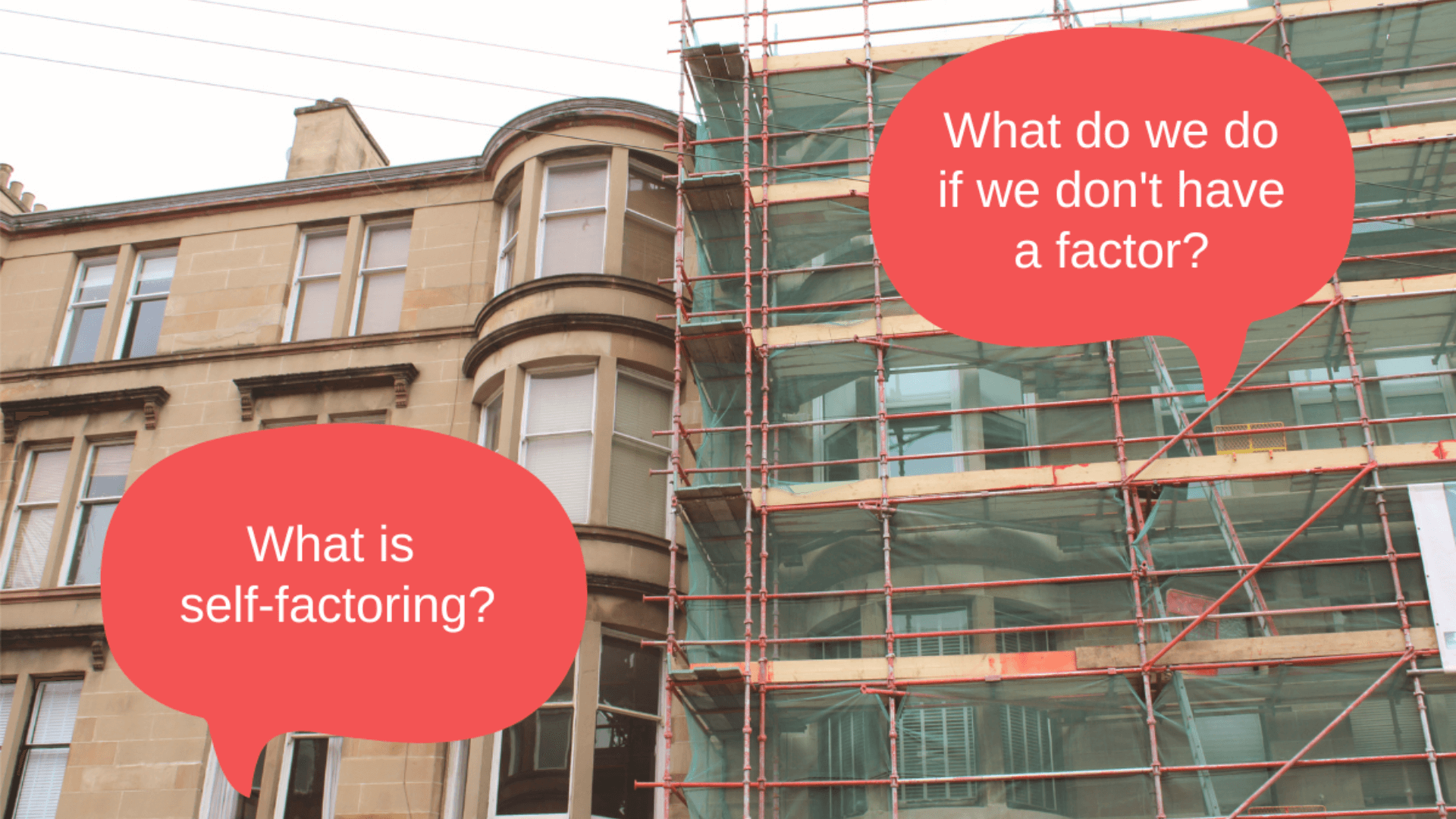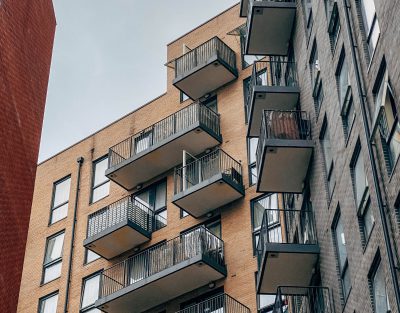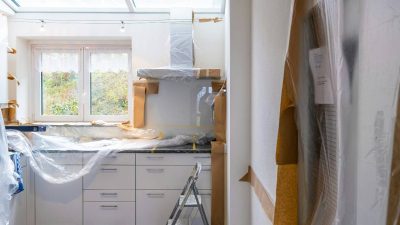In any tenement building, the owners are responsible for the management and maintenance of their building. If no factor has been appointed to help maintain and manage the building, then the owners will need to self-factor.
Self-factoring means the owners will need to come together to deal with any maintenance or management issues that arise in their building. This can be challenging, but if owners can communicate well and make decisions collaboratively, this can make the process easier. Anyone who is self-factoring a building does not need to be registered under the Property Factors Act 2011, so long as they are not doing this on a commercial basis (i.e. charging owners for their time).
When it comes to making decisions about how to manage and maintain the communal parts of a building, like the close and common stair, it is important that all owners are informed. Making decisions about maintenance work to the common parts of a tenement building most often requires a majority vote to go ahead. Therefore, it is important that all owners are consulted about any changes or repairs to the building before they are carried out.
Owners’ Associations
One way to ensure that all owners are involved in decisions and the management of the building is to set up an owners’ association. An owners’ association is a group of owners who come together to tackle issues within their building.
There are several advantages to having an owners’ association:
- They can open a Maintenance Account that can be used to pay for common repairs
- Research indicates that owners’ associations make owners more satisfied with the way their flats are managed
- Streamlines decision-making between owners
- Improves communication within the building
Understanding a Building’s Rules
If owners are managing the building themselves, it is important that they not only have good communication, but also know and understand the building’s rules. The title deeds for a property should set out the rules of a tenement building and specify the owners’ responsibilities. However, sometimes title deeds may be unworkable or have information missing. If this is the case, owners should refer to the Tenements (Scotland) Act 2004 for each particular case.
For example, if a building needs a roof repair but the title deeds do not say anything about who is responsible for the roof, the owner must refer to the Tenements Act. Under the Act, the roof is a common responsibility, so all owners must share the cost of a roof repair.
In another case, the title deeds might specifically say that the close and stair are the mutual responsibility of some, but not all, owners in the building. In this situation, the owners would refer to the title deeds rather than the Tenements Act.
Many computerised title deeds for registered properties are found in the Land Register of Scotland. For such properties, anyone can obtain a copy of the title deeds for a nominal fee. It can be useful to obtain a copy of the title deeds and note down what they say for each part of the building. On the Under One Roof website, there is a downloadable building’s rules checklist to do this, which can make it easier to reference the title deeds for a building, rather than reading the original documents every time they are needed.
Dealing with Challenges
When taking on the responsibility of self-factoring in a tenement building, owners must be prepared to tackle a range of challenges. This includes being prepared to seek professional help when needed, such as engaging with surveyors, architects, or contractors to gain a formal assessment of the condition of the building and manage more complex repairs. Additionally, owners who self-factor should not shy away from proactively engaging with reluctant payers, dealing with difficult builders, and navigating bureaucratic hurdles.
Although self-factoring can have its challenges, with the right knowledge and skills, such as knowing your rights and responsibilities as an owner, understanding title deeds, and taking a proactive approach to addressing complex tasks, owners can successfully self-factor their tenement building, ensuring its proper maintenance and management. For more information on self-factoring, check out this article.













